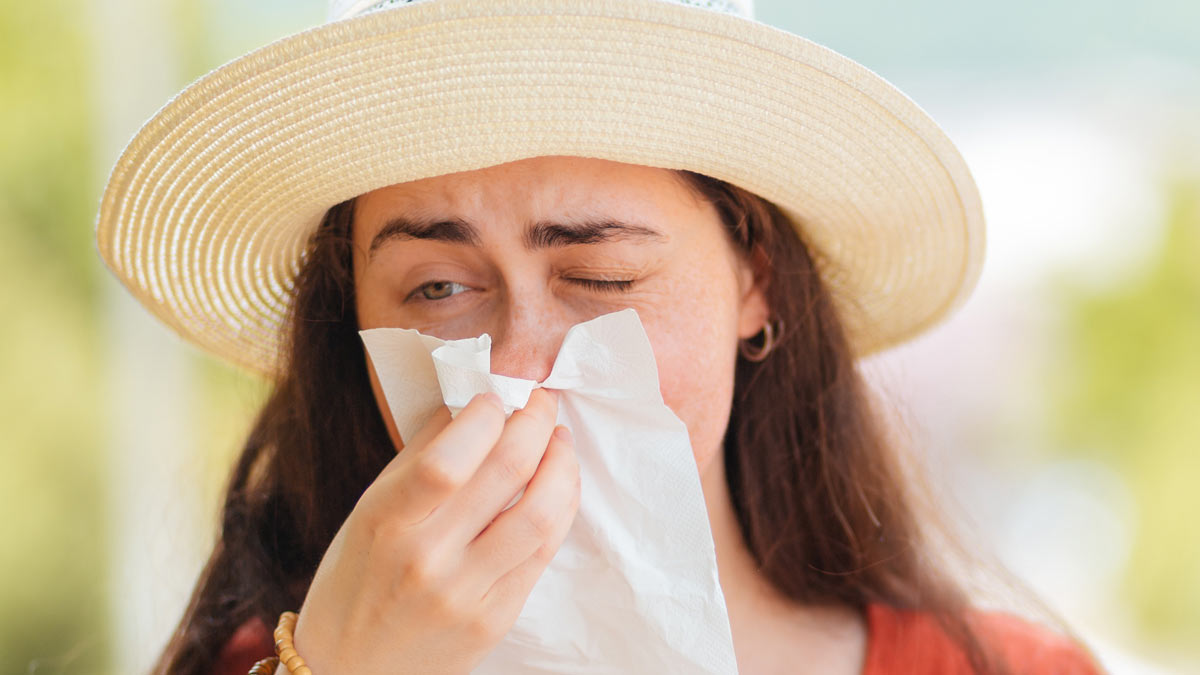“Is it allergies or COVID-19?”
That’s a question plaguing many South Carolinians who are constantly self-assessing their health and the health of their family members during the current pandemic.
So how are people to know if the discomfort they are feeling is allergy related or the symptoms of a contagious illness? Meredith L. Moore, M.D., of Charleston Allergy & Asthma, is board-certified in allergy, asthma and immunology. She explained the symptoms related and unrelated to coronavirus, the importance of identifying allergies and the variety of options available for proper treatment and management of allergy issues.
“Moderate to severe itching of the nose, eyes or throat is a symptom almost always accompanied with allergies, which is not seen with respiratory viruses,” she said. “If a patient does not report itching as a primary symptom, then other possible causes of their condition should be considered.”
Allergy symptoms include sneezing, itchy eyes and nose, nasal congestion, itchy or scratchy throat and, in some cases, fatigue and headache. A respiratory virus such as the coronavirus or a common cold often will produce a low-grade fever, body aches and severe fatigue. A cold generally lasts for seven to 10 days, but allergies can hang on for weeks or even months.
When gauging whether to get back to your normal schedule, Dr. Moore noted that, generally speaking, if you are dealing with sneezing and itchy, watery eyes from allergies, there is no reason to stay home from school or work; however, in the midst of a pandemic, with a novel coronavirus that has a wide range of symptoms, she recommended greater caution.
Furthermore, individual allergies should be detected as soon as possible because although they are not contagious, they can do more than just provoke bothersome symptoms. Since various studies have determined that people who suffer from allergies have lower academic and workplace performance, as well as a reduction in sleep, memory, attention span and reaction times, identification is important for proper treatment to take place. The fall season often coincides with the return to school and the emergence of the most abundant Lowcountry allergens, specifically weeds and mold, which could help South Carolina residents decipher between an illness and an allergy.
The great news is that there are a number of ways to manage allergies. Lessening or limiting exposure is key, but, when that is not possible, over-the-counter allergy medicines such as antihistamines and nose sprays are specially formulated to help make allergies less bothersome.
Dr. Moore recommended, “If symptoms continue for more than a few weeks, seek out professional help so a proper diagnosis can be made, and, if needed, allergy shots can be formulated to fit the needs of the individual patient.”
Allergy skin testing, with results available in less than 15 minutes, is an important step that identifies exactly which allergens are causing symptoms. Test results and physician feedback will let you know what you are allergic to, when allergy symptoms will likely occur, how long a specific allergy season will last and specific measures you can take to avoid allergens or develop immunity to them through the process of individualized allergy shots.
Even if tests indicate no allergies, the results can offer useful health information.
“We truly care for each patient as an individual with unique concerns, interests and lifestyles,” Dr. Moore said. Our primary goal is to help patients get out there doing the things they love to do most.”
To learn more, visit www.charlestonallergy.com.
By Jennifer Harrison






